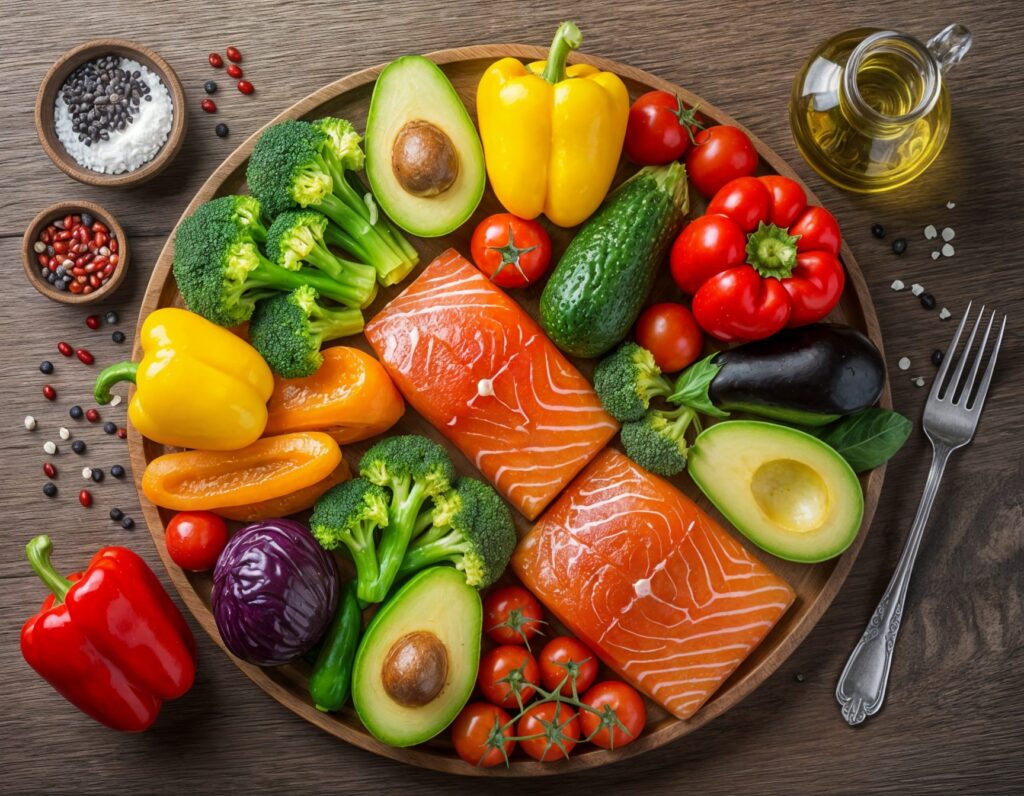Picture this: You’re a college student juggling coursework, social pressures, financial stress, and the uncertainty of your future. If you’re feeling overwhelmed, you’re not alone. About 40% of college students report depression symptoms, and about half of them are receiving treatment of some kind, making stress, anxiety, and depression the number one impediment to academic performance for U.S. college students.
But what if the solution wasn’t just in therapy sessions or medication bottles? What if it was on your dinner plate?

A Revolutionary Discovery
Researchers at Ohio State University have uncovered something remarkable that’s sending shockwaves through both the nutrition and mental health communities. A new study shows an association between at least 10 weeks of following a well-formulated ketogenic diet and a roughly 70% decrease in depression symptoms among a small group of college students.
To put this in perspective, typical depression treatments improve symptoms by about 50 percent, but this diet showed a nearly 70 percent improvement in college students. That’s not just statistically significant—it’s potentially life-changing.
The Study That's Changing Everything
Led by Dr. Jeff Volek, a professor of human sciences at Ohio State University, this pilot study followed 16 college students who were already receiving medication, counseling, or both for major depressive disorder. The participants—10 women and six men with an average age of 24—embarked on a carefully monitored ketogenic journey that would yield extraordinary results.
What Makes This Study Special?
Unlike many nutrition studies that simply tell participants what to eat and hope for the best, this research went above and beyond. Participants received extensive education on the keto diet, consisting of fewer than 50 grams of carbs per day combined with higher fat and moderate protein intake. The research team provided:
- Personalized guidance: Researchers talked to each individual about their food preferences to tailor dietary suggestions
- Practical support: 10 complete starter meals and consistent snacks for the first half of the trial
- Ongoing communication: A private app for continuous support throughout the study
- Flexible approach: Students were advised to eat when hungry and stop when full, without worrying about calories
The Remarkable Results
The outcomes were nothing short of extraordinary, with improvements showing up remarkably quickly:
Lightning-Fast Mental Health Improvements
Self-reported depression scores decreased 37% by week two and reached 69% of improvement at week 10-12. Even more impressive, clinician-rated assessments of depression at week six and week 10-12 decreased by 59% and 71%, respectively.
Dr. Ryan Patel, a psychiatrist involved in the study, emphasized the significance: “The average effect size for medications and counseling after 12 weeks is about 50%, and we saw a substantially greater result”.
Beyond Depression: Holistic Improvements
The benefits extended far beyond mood improvements:
- Enhanced well-being: By week two, perceived ratings of global wellness had increased two-fold, which improved to nearly three-fold at the end of the intervention
- Physical transformation: On average, students lost 11 pounds, and their body fat percentage dropped by 2.4%
- Cognitive enhancement: Participants also posted gains in memory and processing speed, with a trend toward improved executive function
- Universal success: Remarkably, the range of symptom severity varied, but nobody’s symptoms worsened
The Science Behind the Success
So why does the ketogenic diet appear to have such profound effects on mental health? The keto diet converts fat into ketones used by cells in the body and brain as an alternative to glucose, and is designed to put the body in a state of nutritional ketosis, when it has greater access to ketones as both fuel and a signaling molecule.
Dr. Volek explains: “The idea is that the ketogenic diet is working through a variety of potentially different mechanisms – there’s a whole range of physiological metabolic adaptations to the diet that could overlap with some of the pathophysiology of depression”.
The Adherence Factor
One crucial element of the study’s success was participant adherence. Participants achieved ketosis, based on a measure of ketone values in their blood, 73% of the time – an indication of good adherence to the diet. This high adherence rate was likely due to the comprehensive support system and education provided by the research team.
The Birth of Metabolic Psychiatry
The findings, published in Translational Psychiatry, hint at a potential new frontier in “metabolic psychiatry,” where nutrition plays a central role in mental health treatment. This emerging field recognizes that our brains are metabolic organs that can be profoundly influenced by what we eat.
Real-World Implications
Dr. Patel highlighted a critical issue facing college campuses today: “We have a treatment gap in that we have more students suffering from mental health concerns than can feasibly receive professional treatment. There is a need for finding ways of helping students on a large scale. And nutrition is one way we can do that”.
This study suggests that dietary interventions could serve as powerful adjunctive therapies, potentially helping to bridge the treatment gap while offering hope to those who haven’t found relief through traditional approaches.
Important Considerations
While these results are incredibly promising, it’s crucial to understand the study’s limitations:
- Small sample size: Only 16 participants completed the study
- Pilot study: The pilot study did not have a non-keto control group for comparison
- Specific population: Results were observed in college students and may not generalize to all age groups
- Safety screening: Students were also screened to ensure that they did not have any contraindications to a ketogenic diet, such as Body Mass Index under 20, eating disorders, pregnancy or high alcohol consumption
The Road Ahead
Dr. Volek is optimistic about future research: “This is one of the first really well-controlled studies and it has limitations, but the results encourage us to want to keep pursuing it”. The team plans to conduct larger clinical trials to further validate these findings and explore the underlying mechanisms.
As Dr. Volek beautifully put it: “So many people are suffering right now, so it’s rewarding to potentially bring forward a solution”. While more research is needed, this study offers a beacon of hope for the millions struggling with depression.
The ketogenic diet’s potential as a mental health intervention represents a paradigm shift in how we think about treating depression. By addressing mental health through the lens of metabolism and nutrition, we may be opening doors to more accessible, effective, and holistic approaches to healing.
For college students and young adults battling depression, this research suggests that sometimes the most powerful medicine might be found not in a pharmacy, but in a well-planned, ketogenic meal. As we await larger studies to confirm these findings, one thing is clear: the intersection of nutrition and mental health is a frontier ripe for exploration, offering new hope for those seeking relief from depression’s grip.
This research was published in Translational Psychiatry and supported by a grant from the Baszucki Group Brain Research Fund. Always consult with healthcare professionals before making significant dietary changes, especially if you’re currently receiving treatment for depression or other medical conditions.
Hey there! We hope you love our fitness programs and the products we recommend. Just so you know, Symku Blog is reader-supported. When you buy through links on our site, we may earn an affiliate commission at no extra cost to you. It helps us keep the lights on. Thanks.
Disclaimer: The information provided in this discussion is for general informational and educational purposes only. It is not intended as medical or professional advice. Only a qualified health professional can determine what practices are suitable for your individual needs and abilities.


